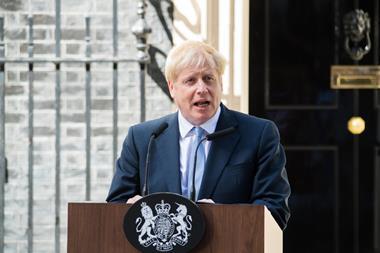Occasionally, there is good reason to throw good money after bad.

That is what SoftBank clearly believes, anyway, having thrown WeWork a multi-billion-dollar lifeline in an effort to shore up the business – on top of the billions it has already pumped in.
The Japanese conglomerate argues that the deal, which increases its stake to around 80% and relegates Adam Neumann to the position of “observer” (oh to be paid $1.7bn just to observe), will “restore momentum” to a business that was just experiencing the “growth challenges” any world-leading technology disruptor faces.
Many in the industry agree that strip out Neumann (who it turned out was not the messiah, just a very naughty boy) and the business should be well placed to return to some semblance of financial health. One senior London agent goes so far as to describe the deal as “exceptionally good news”, claiming “no one cares about the valuation except the shareholders”. But are people talking things up? Is the underlying business model really that robust?
It seems to me that the emperor may have gone, but his clothes are still being proudly worn. Yet there are huge question marks over: the number and length of the rent-free periods WeWork has taken; its ability to cope with mounting competition, particularly in London; and the model’s resilience in a recession.
WeWork was also reportedly burning through money so rapidly that it was likely to run out of it by mid-November. How could that possibly be the case? The company’s recent IPO prospectus stated that it had $2.5bn in cash and cash equivalents at the end of June. It made losses of $700m in the first half of 2019. So what happened to all the money? The speed with which WeWork rushed into this rescue deal with SoftBank and the terms of the deal suggest something happened to it – or is there a bit of smoke and mirrors going on here?
There are many more unanswered questions, not least: what happens to the space WeWork was poised to take? As we reveal, a number of flexible workspace providers have been approached by landlords that had walked away from deals with WeWork. Rivals also report a “major spike in applications from WeWork candidates”. There are even stories of WeWork salespeople poaching tenants from other WeWork centres because there are no checks and balances to stop them.
Next week, we will follow up on our investigation into ‘The cult of WeWork’ by taking a more granular look at what went wrong at the company. We’ll also look at the man behind the business. Back in 2011, The Daily News quoted Neumann as saying: “The 90s and early 2000s were the ‘I’ decade. The iPhone, the iPod – everything was about me. The next decade is the ‘We’ decade, where collaboration is the future of innovation.”
As that decade now draws to a close, the question is: what will the next one be? If you were being cute, you would say the ‘They’ decade, but if the ongoing Brexit shenanigans are anything to go by, I reckon we could be heading into the ‘Them and Us’ decade, in which divisiveness and schism will be the order of the day, not just here but everywhere.
Prestbury’s Nick Leslau fears the division in parliament will lead to “more inertia, indecision, vicious fighting and still no Brexit”. For some of us, the last bit would be OK, but not the rest.





























No comments yet